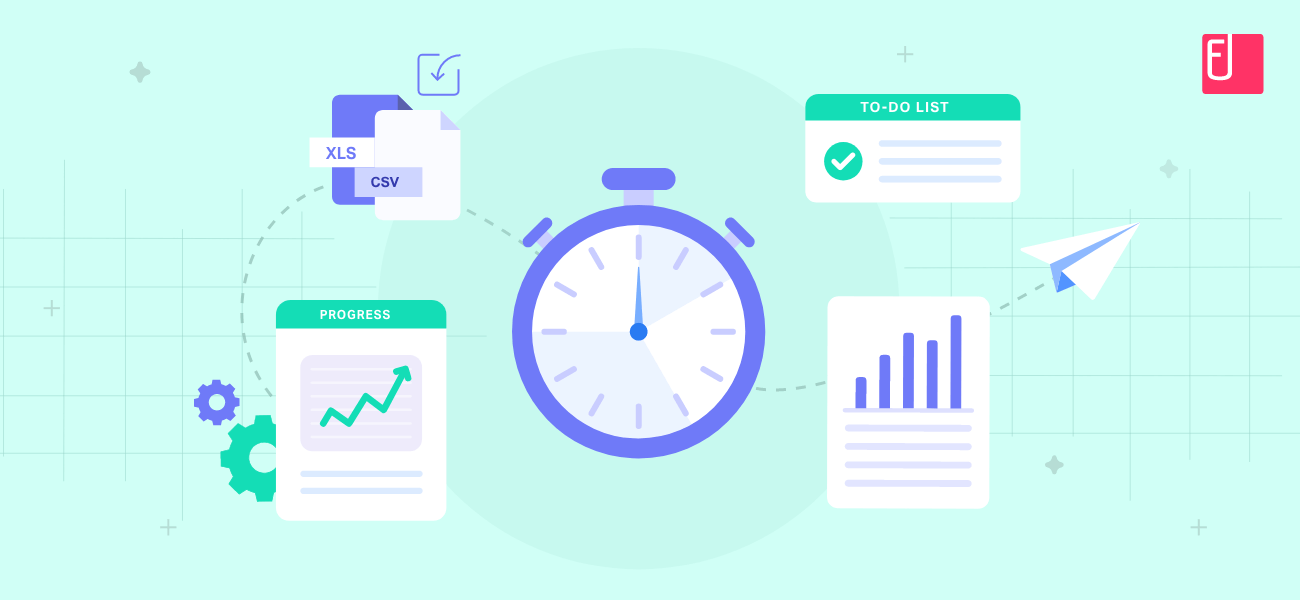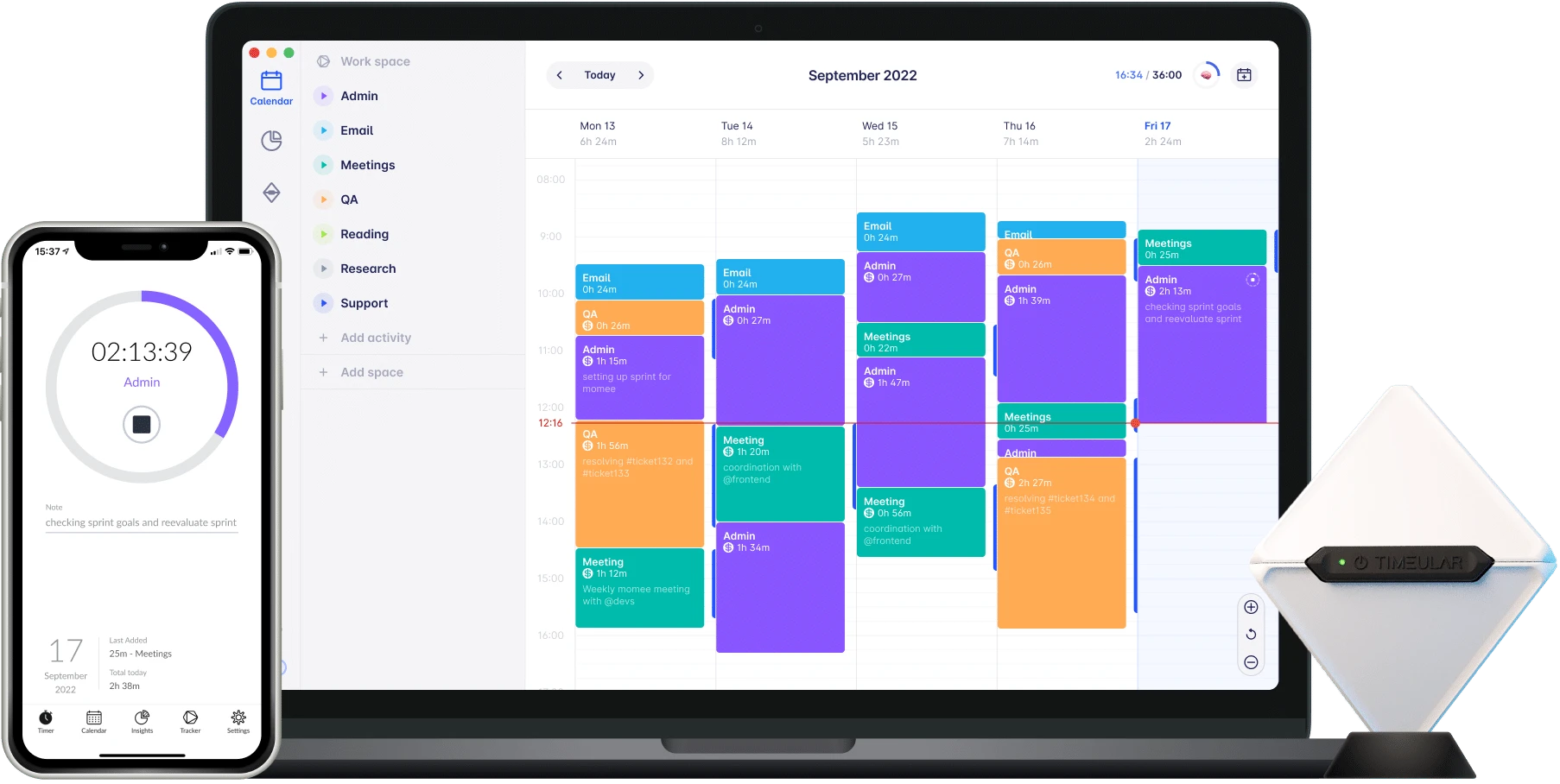Time tracking software has become an indispensable tool in today's modern work environment.
Offering numerous advantages, it enhances efficiency, ensures better project management, and provides invaluable insights into how time is spent. Embracing this technology can truly be a game-changer.

Key Features of Modern Time Tracking Software
Modern time-tracking software has evolved to include a variety of features to cater to the diverse needs of businesses and freelancers. Some of the standout features are:
- Automatic Time Capture: Tracks your activities in real-time without manual input.
- Detailed Reporting: Provides breakdowns of time spent on projects, tasks, or clients.
- Integrations: Connects with other tools like project management or invoicing software.
- Mobile Access: Allows tracking from smartphones or tablets.
- Offline Tracking: Records time even when you're not connected to the internet.
- Billable Hours Calculation: Helps in invoicing by categorizing hours as billable or non-billable.
- Team Collaboration: Enables monitoring and coordination of team members' tasks.
Integrating Time Tracking with Other Business Tools
Integration is a vital part of using these software and requires the following steps:
- Identify the Tools: Determine which business tools you need to integrate with your time tracking software.
- Choose Compatible Software: Ensure your time tracking software supports integrations with the identified tools.
- Use APIs: Utilize Application Programming Interfaces provided by the software vendors to connect tools.
- Configure Settings: Adjust settings in both the time tracking software and the business tool to ensure seamless data exchange.
- Test the Integration: Monitor data flow between the tools to ensure accuracy and consistency.
- Train Your Team: Make sure your team knows how to use the integrated tools effectively.
Enhancing Productivity: Real-world Impact of Time Tracking
Time tracking fundamentally transforms the way businesses and individuals approach work. In the real world, its impact is evident in heightened productivity levels.
When you measure time, you gain a clear understanding of where it's spent, allowing for better allocation of resources.
This awareness often leads to faster project completion, more accurate billing, and a deeper understanding of workload distribution.
Furthermore, employees become more accountable for their time, fostering an environment of responsibility and efficiency.
Overcoming Common Time Wasting Pitfalls with Software
To overcome time-wasting pitfalls using time tracking software, start by identifying where time is often wasted. The software will spotlight activities or tasks that consume more time than they should.
Set clear goals and benchmarks within the software to measure productivity. If you notice consistent time drains in certain areas, address them by either allocating more resources.
Lastly, review the collected data regularly to make informed decisions, ensuring consistent growth and efficiency.
The Relationship Between Time Tracking and Employee Well-being
Time tracking and employee well-being are interconnected. On one hand, time tracking can provide clarity, helping employees manage their tasks efficiently, leading to a healthier work-life balance.
On the other hand, if misused, it can cause stress, with employees feeling constantly monitored, leading to a decline in morale and well-being.
It's crucial for employers to use time tracking ethically and communicate its purpose clearly to ensure it benefits both productivity and employee wellness.

The Best Time Tracking Software today
The best time tracking software for you depends on your specific needs. The following tools are recognized for their ease of use, robust features, and integration capabilities:
Toggl
Toggl is known for its user-friendly interface and simplicity. Unique features of Toggl include:
- One-click Timers: Start or stop tracking with a single click.
- Offline Mode: Track time even without an internet connection.
- Real-time Syncing: Updates are reflected across devices instantly.
- Project and Task Color-Coding: Organize work visually.
- Detailed Reports: Dive deep into time data with visual reports.
- Integration: Connect Toggl with other apps using integrations and plugins.
Harvest
Harvest is a versatile time tracking software. Unique features that differentiate Harvest are:
- Invoicing Integration: Directly generate invoices based on tracked time and expenses.
- Expense Tracking: Attach receipts and log expenses alongside time entries.
- Team Scheduling: Plan ahead and allocate resources with a visual scheduling tool.
- Varied Reporting: Filtered insights based on clients, projects, and team members.
- Multi-currency Invoicing: Bill clients in various currencies based on your needs.
- Integration Suite: Connect Harvest to other platforms using its extensive integration capabilities.
TimeDoctor
TimeDoctor is a comprehensive time tracking solution with a focus on productivity. Its best features include:
- Screenshots: Captures screen activities at set intervals to monitor work.
- Website and App Monitoring: Records which websites and applications are used and for how long.
- Break Tracking: Monitors the duration and frequency of breaks taken.
- Silent and Visible Tracking: Offers both discrete monitoring and visible tracking options.
- Client Access: Clients can access projects to see tracked work hours.
- Integration Capacity: Seamlessly connects with other productivity tools and platforms.
Clockify
Clockify offers time tracking with a focus on affordability and scalability. The best about Clockify is:
- Unlimited Users: No limit on the number of users, even in its free version.
- Time Audit: Review and make corrections to time entries.
- Flexible Reporting: Customize and filter time data as needed.
- Project Time Estimation: Set estimates for projects and compare with actuals.
- Public API: Extend functionalities by integrating with other tools.
- Time Rounding: Round up or down time entries for more straightforward invoicing.
Some cons about Time Tracking Software
While time tracking software offers many benefits, there are drawbacks:
- Invasion of Privacy: Constant monitoring may feel intrusive to some employees.
- Micromanagement Fear: The detailed tracking can lead to perceived micromanagement.
- Initial Setup Time: Implementing a system takes time and training.
- Potential for Misuse: Over-reliance can lead to not seeing the bigger picture of performance.
- Software Limitations: Not all tools capture every nuance of a workday.
- Costs: Some advanced features come with premium price tags.
Conclusion
Time tracking software proves invaluable for enhancing productivity, providing insights into work habits, and streamlining billing processes.
Notable tools like Toggl, Harvest, TimeDoctor, and Clockify each offer unique features catering to different needs. However, it's crucial to be aware of the potential drawbacks, such as privacy concerns.
As with any tool, its effectiveness largely depends on how it's implemented and used within an organization.







